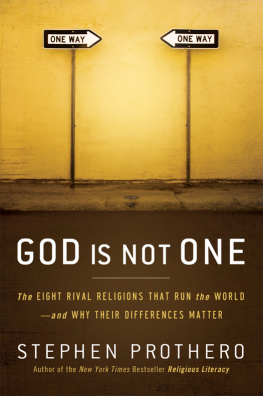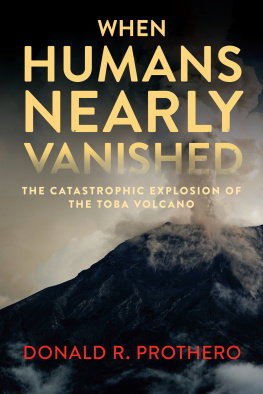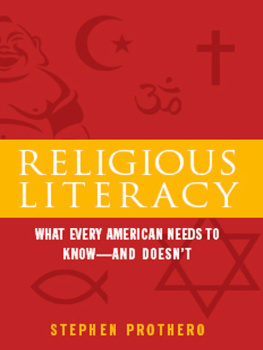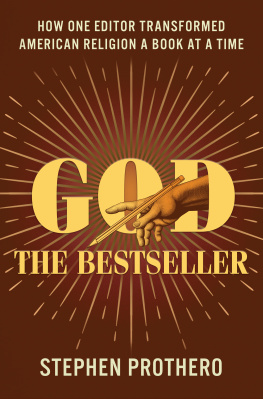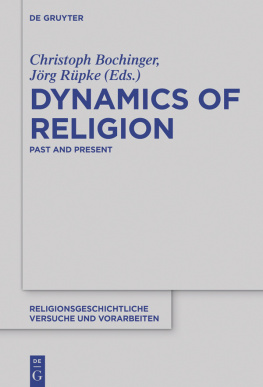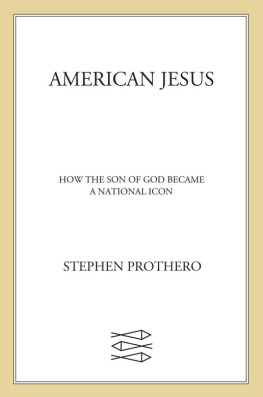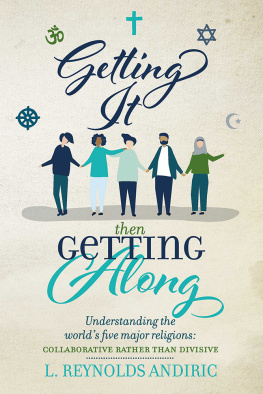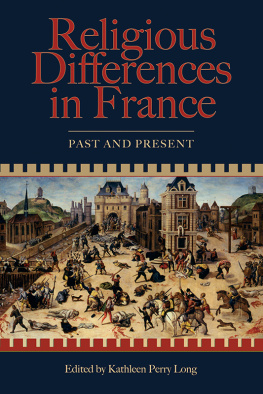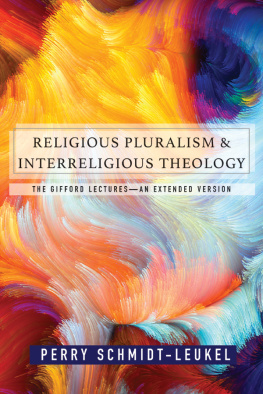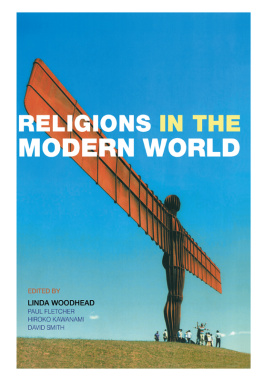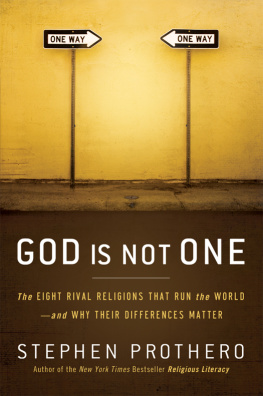S cholarly books on religion often use diacritical marks to indicate how a word is pronounced in Sanskrit or other sacred languages. In fact, use of diacriticals is a key way to signal ones scholarly bona fides. But diacritical marks are gibberish to most readersis that a breve () or a cedilla ()?so I avoid them here except in direct quotations, proper names, and citations. If an s with a mark underneath or atop it is pronounced like sh, then it appears here as sh: the Hindu god Shiva instead of Siva, the Hindu goal of moksha instead of moksa. Diacritical marks also present a barrier to the integration of non-Christian religious terms into Englisha barrier that is better torn down than built up. One reason the Sanskrit term nirva - n . a made it into English dictionaries was its willingness to drop the macron over the a and the underdot accompanying the n. And Hindu scriptures such as the Mahbhrata and the Rmyana are already finding wide acceptance among English speakers without their respective circumflexes.
Religious Studies scholars also typically date events either as C.E. (Common Era) or B.C.E. (before the Common Era), in an effort to avoid the Christian bias inherent in A.D. (Anno Domini, in the year of our Lord) and B.C. (before Christ). This is sleight of hand since these dates continue to mark events in relation to the life of Jesus whether or not those events are said to have occurred in C.E. or A.D. However, since the use of A.D. and B.C. indirectly imply belief in Jesus as both Lord and Christ, I use C.E. and B.C.E. here. Muslims have their own calendar, which begins with the hijra (flight or emigration) of Muhammad from Mecca to Medina in 622 C.E . So while this book appears in 2010 C.E. , it is also being published in A.H. 1431.
A t least since the first petals of the counterculture bloomed across Europe and the United States in the 1960s, it has been fashionable to affirm that all religions are beautiful and all are true. This claim, which reaches back to All Religions Are One (1795) by the English poet, printmaker, and prophet William Blake, is as odd as it is intriguing. No one argues that different economic systems or political regimes are one and the same. Capitalism and socialism are so obviously at odds that their differences hardly bear mentioning. The same goes for democracy and monarchy. Yet scholars continue to claim that religious rivals such as Hinduism and Islam, Judaism and Christianity are, by some miracle of the imagination, essentially the same, and this view resounds in the echo chamber of popular culture, not least in Dan Browns multi-million-dollar Da Vinci Code franchise.
The most popular metaphor for this view portrays the great religions as different paths up the same mountain. It is possible to climb lifes mountain from any side, but when the top is reached the trails converge, writes philosopher of religion Huston Smith. At base, in the foothills of theology, ritual, and organizational structure, the religions are distinct. Differences in culture, history, geography, and collective temperament all make for diverse starting points.... But beyond these differences, the same goal beckons. This is a comforting notion in a world in which religious violence often seems more present and potent than God. But is it true? If so, what might be waiting for us at the summit?
According to Mohandas Gandhi, Belief in one God is the cornerstone of all religions, so it is toward this one God that all religious people are climbing. When it comes to divinity, however, one is not the religions only number. Many Buddhists believe in no god, and many Hindus believe in thousands. Moreover, the characters of these gods differ wildly. Is God a warrior like Hinduisms Kali or a mild-mannered wanderer like Christianitys Jesus? Is God personal, or impersonal? Male, or female (or both)? Or beyond description altogether?
Like Gandhi, the Dalai Lama affirms that the essential message of all religions is very much the same. In his view, however, what the worlds religions share is not so much God as the Goodthe sweet harmony of peace, love, and understanding that religion writer Karen Armstrong also finds at the heart of every religion. To be sure, the worlds religious traditions do share many ethical precepts. No religion tells you it is okay to have sex with your mother or to murder your brother. The Golden Rule can be found not only in the Christian Bible and the Jewish Talmud but also in Confucian and Hindu books. No religion, however, sees ethics alone as its reason for being. Jews understand halakha (law or way) to include ritual too, and the Ten Commandments begin with how to worship God.
To be fair, those who claim that the worlds religions are one and the same do not deny the undeniable fact that they differ in some particulars. Obviously, Christians do not go on pilgrimage to Mecca, and Muslims do not practice baptism. Religious paths do diverge, Huston Smith admits, in the foothills of dogma, rites, and institutions.
This is a lovely sentiment but it is dangerous, disrespectful, and untrue. For more than a generation we have followed scholars and sages down the rabbit hole into a fantasy world in which all gods are one. This wishful thinking is motivated in part by an understandable rejection of the exclusivist missionary view that only you and your kind will make it to heaven or Paradise. For most of world history, human beings have seen religious rivals as inferior to themselvespractitioners of empty rituals, perpetrators of bogus miracles, purveyors of fanciful myths. The Age of Enlightenment in the eighteenth century popularized the ideal of religious tolerance, and we are doubtless better for it. But the idea of religious unity is wishful thinking nonetheless, and it has not made the world a safer place. In fact, this naive theological groupthinkcall it Godthinkhas made the world more dangerous by blinding us to the clashes of religions that threaten us worldwide. It is time we climbed out of the rabbit hole and back to reality.
The worlds religious rivals do converge when it comes to ethics, but they diverge sharply on doctrine, ritual, mythology, experience, and law. These differences may not matter to mystics or philosophers of religion, but they matter to ordinary religious people. Muslims do not think that the pilgrimage to Mecca they call the hajj is inessential. In fact, they include it among the Five Pillars of Islam. Catholics do not think that baptism is inessential. In fact, they include it among their seven sacraments. But religious differences do not just matter to religious practitioners. They have real effects in the real world. People refuse to marry this Muslim or that Hindu because of them. And in some cases religious differences move adherents to fight and to kill.
One purpose of the all religions are one mantra is to stop this fighting and this killing. And it is comforting to pretend that the great religions make up one big, happy family. But this sentiment, however well-intentioned, is neither accurate nor ethically responsible. God is not one. Faith in the unity of religions is just thatfaith (perhaps even a kind of fundamentalism). And the leap that gets us there is an act of the hyperactive imagination.
Allergic to Argument
One reason we are willing to follow our fantasies down the rabbit hole of religious unity is that we have become uncomfortable with argument. Especially when it comes to religion, we desperately want everyone to get along. In my Boston University courses, I work hard to foster respectful arguments. My students are good with respectful, but they are allergic to argument. They see arguing as ill-mannered, and even among friends they avoid it at almost any cost. Though they will debate the merits of the latest Coen brothers movie or U2 CD, they agree not to disagree about almost everything else. Especially when it comes to religion, young Americans at least are far more likely to say I feel than I think or (God forbid) I believe.

